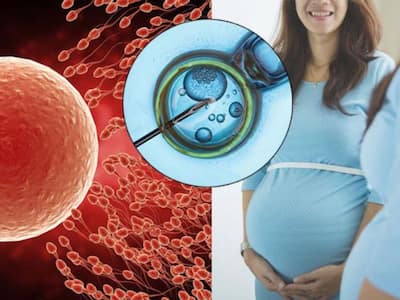
The truth is that in IVF, just the fertilisation takes place outside the body, but the pregnancy still occurs once the foetus is implanted in the womb.
Patients may be curious about what to anticipate from an IVF pregnancy after a successful procedure. With the help of assisted reproductive technologies (ART), getting pregnant might seem very different from “natural” conception, and some women worry that this difference will last throughout the pregnancy.
The answer is typically no since, after the first few weeks, an IVF pregnancy is identical to a “regular” pregnancy in every way, at least insofar as any two pregnancies can be contrasted. Regardless of how the kid is conceived, every woman and every pregnancy is different. In light of this, let’s explore what happens during an “average” IVF pregnancy and what difference it has from a ‘natural pregnancy’.
In this article, we explore the differences between natural pregnancy and IVF pregnancy.
IVF Pregnancy vs. Natural Pregnancy: Understanding The Difference
The level of consciousness is the main distinction between an IVF pregnancy and a “regular” pregnancy in the first few days and weeks following embryo transfer. The majority of women who conceive on their own don’t become aware of their pregnancy until a month or more into it. That awareness starts for an IVF patient as soon as the embryo is transferred. Practically speaking, this can imply that you might be experiencing more worry and sensitivity to the early signs of pregnancy than the majority of women do.
Speaking to TheHealthSite.com, Dr Swati Mishra, Consultant, Birla Fertility & IVF Centre, Kolkata said, “IVF is an assisted reproductive technology that involves combining eggs and sperm in the lab. The fertilized embryos are then transferred back into the woman’s uterus, where they may implant and result in pregnancy. IVF is usually recommended for couples with fertility issues or individuals who are unable to conceive naturally. It allows for greater control over the fertilization process and offers higher chances of pregnancy for those struggling with infertility.”
READ RELATED: The Fitness Habits Tom Cruise Lives by To Stay Young & Fit at 61
While both types of pregnancies can result in a healthy baby, there are certain differences. IVF pregnancies may lead to multiple pregnancies (for example twins) due to the possibility of transferring multiple embryos. Additionally, hormonal medications are needed during IVF Pregnancy. Natural pregnancies, on the other hand, do not involve the use of fertility treatments or hormonal medications. In a natural pregnancy, sperm placed in the vagina fertilise the egg. The fertilised egg divides and develops into an embryo in the fallopian tube, which subsequently returns to the uterus to be implanted.
“It’s important to note that every pregnancy is unique, and the specific experiences and outcomes can vary widely for individuals irrespective of being an IVF or Natural pregnancy.” Dr Mishra said.
Total Wellness is now just a click away.
Follow us on
Don’t Miss Out on the Latest Updates.
Subscribe to Our Newsletter Today!
window.addEventListener(‘load’, (event) => {
$(‘#commentbtn’).on(“click”,function(){
(function(d, s, id) { var js, fjs = d.getElementsByTagName(s)[0]; if (d.getElementById(id)) return; js = d.createElement(s); js.id = id; js.src = “//connect.facebook.net/en_US/sdk.js#xfbml=1&version=v2.3”; fjs.parentNode.insertBefore(js, fjs);}(document, ‘script’, ‘facebook-jssdk’));
$(“.cmntbox”).toggle();
});
});






